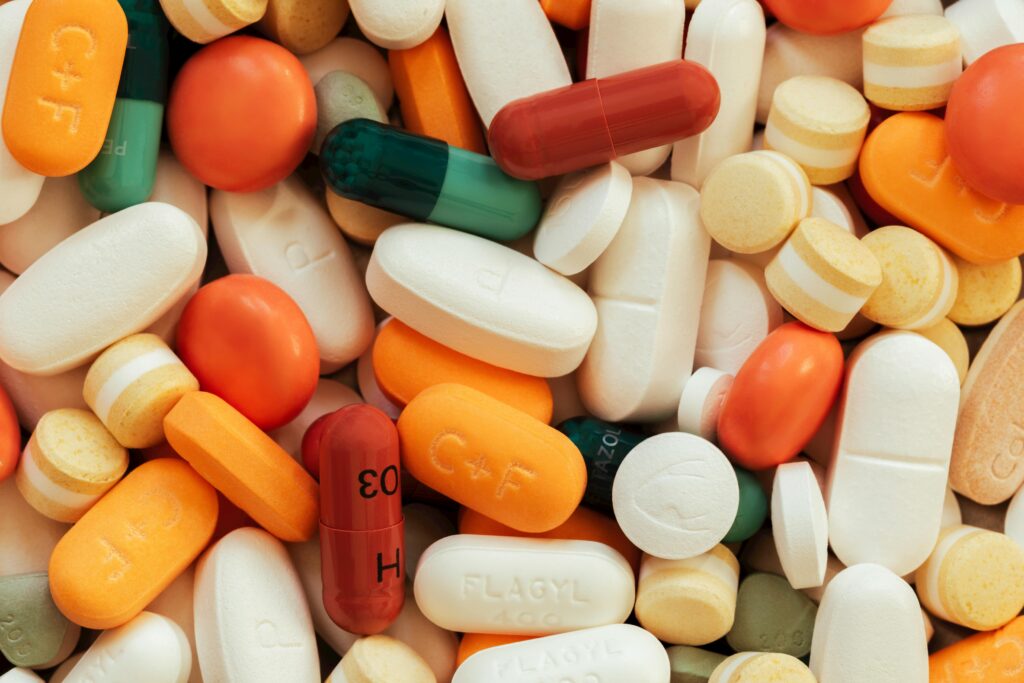
Drug abuse is a prevalent issue that affects individuals from all walks of life. Within the realm of prescription drug abuse and substance use, various drugs such as stimulants, depressants, hallucinogens, and opioids are commonly misused for non-medical purposes. In this comprehensive guide, we delve into the world of drug abuse, its risks, effects on health, addiction signs, and available treatment options.
Cocaine
When it comes to drug abuse, cocaine is a potent stimulant drug that is frequently misused for its euphoric effects. The overview of cocaine abuse reveals a pattern of snorting, smoking, or injecting this white powder to achieve a rapid high. However, the misuse of cocaine can lead to severe health risks, including cardiovascular issues, respiratory problems, and neurological complications.
Among the health risks associated with cocaine use are elevated heart rate, high blood pressure, and increased alertness. Prolonged abuse of cocaine can result in addiction, where individuals experience compulsive drug-seeking behavior and struggle to control their drug use. Signs and symptoms of cocaine addiction may manifest as changes in behavior, mood swings, financial difficulties, and social withdrawal.
Methamphetamine
Methamphetamine, commonly known as meth, is a highly addictive stimulant that impacts the central nervous system. The effects of methamphetamine on the body include increased energy, decreased appetite, and heightened alertness. However, the long-term consequences of methamphetamine abuse can be devastating, leading to severe dental issues, skin sores, and cognitive impairments.
For individuals struggling with methamphetamine addiction, seeking recovery options is vital for overcoming substance use disorders. Treatment approaches for methamphetamine addiction may involve behavioral therapies, counseling, support groups, and medication-assisted treatments to address both the physical and psychological aspects of addiction.
Prescription Drug Abuse
Prescription drug abuse encompasses the misuse of medications that are intended for therapeutic purposes. Commonly abused prescription drugs include opioids, benzodiazepines, and stimulants that are used to treat various medical conditions. However, risks of misusing prescription medications can result in addiction, overdose, and adverse health effects.
When addressing prescription drug addiction, different treatment approaches are available to support individuals in their recovery journey. These approaches may include detoxification, rehabilitation programs, behavioral therapies, and ongoing support to prevent relapse and promote long-term sobriety.
Substance Use and Its Impact
Substance use, especially polydrug use involving the concurrent misuse of multiple substances, poses significant dangers to individuals’ physical and mental health. The mental health effects of substance abuse can manifest as anxiety, depression, psychosis, and increased risk of developing substance use disorders.
Preventing substance use disorders requires raising awareness about the risks associated with drug abuse, promoting healthy coping mechanisms, and seeking early intervention for individuals at risk of developing addiction. By addressing substance use proactively, the impact of drug abuse on individuals, families, and communities can be minimized.
LSD and MDMA
LSD and MDMA are hallucinogenic drugs known for their psychoactive effects on perception, mood, and cognition. Understanding hallucinogens like LSD and MDMA involves recognizing their potential therapeutic uses in controlled settings for treating mental health conditions such as PTSD and depression.
Despite their therapeutic potential, the recreational use of hallucinogenic drugs can lead to hallucinations, altered states of consciousness, and adverse psychological effects. It is essential to differentiate between the therapeutic uses of LSD and MDMA and their misuse as recreational substances to minimize the risks associated with their uncontrolled consumption.

Drug abuse is a serious public health issue that affects individuals of all ages and backgrounds. It refers to the misuse of substances, including prescription medications, illicit drugs, and over-the-counter medicines, in a way that leads to physical, psychological, or social harm. Drug abuse can have devastating consequences on a person’s health and well-being, as well as on society as a whole.
Understanding Drug Abuse
What is drug abuse?
Drug abuse involves the repetitive and uncontrolled consumption of substances beyond their intended use. It can lead to addiction, where the individual experiences a strong compulsion to continue using the substance despite negative consequences.
How do prescription drugs play a role in drug abuse?
Prescription drugs, including opioids, benzodiazepines, and stimulants, are often misused for their psychoactive effects. People may obtain these medications through illegal means or misuse them by taking higher doses than prescribed.
What are the common signs of drug abuse?
Signs of drug abuse can vary depending on the substance being used but may include changes in behavior, mood swings, secretive behavior, financial problems, and relationship issues. Physical signs such as dilated pupils, slurred speech, and weight loss may also be present.
Types of Abused Drugs
What are stimulants such as cocaine and methamphetamine?
Stimulants are substances that increase alertness, attention, and energy. Cocaine and methamphetamine are powerful stimulant drugs that can lead to euphoria and increased energy levels when abused.
How are prescription drugs abused?
Prescription drugs are often abused by individuals who do not have a legitimate medical need for them. They may be taken in ways such as crushing and snorting pills or mixing them with other substances to enhance their effects.
What are the risks associated with substance use?
Substance use can have serious consequences on physical and mental health. Long-term abuse of drugs can lead to addiction, overdose, organ damage, and even death. Additionally, substance abuse can impact relationships, work, and overall quality of life.
Hallucinogens and Depressants
What are hallucinogens like LSD and MDMA?
Hallucinogens are psychoactive substances that alter perception, mood, and cognitive processes. LSD and MDMA are popular hallucinogens known for causing visual and auditory hallucinations, euphoria, and altered sense of reality when consumed.
How do depressants affect the central nervous system?
Depressants, such as benzodiazepines and barbiturates, slow down the central nervous system, leading to drowsiness, relaxation, and reduced anxiety levels. When misused, depressants can cause respiratory depression and even coma.
What are the health risks associated with hallucinogen and depressant abuse?
Abuse of hallucinogens and depressants can result in a range of health issues, including memory problems, anxiety, paranoia, and even psychotic episodes. Overdose on these substances can be life-threatening and may require immediate medical attention.
Prescription Drug Misuse
What are commonly misused prescription drugs?
Opioids, such as oxycodone and hydrocodone, are frequently misused for their pain-relieving and euphoric effects. Benzodiazepines, like alprazolam, are also misused for their calming and sedative properties.
How do opioids and benzodiazepines contribute to drug abuse?
Opioids and benzodiazepines are highly addictive substances that can lead to physical dependence and tolerance with prolonged use. Many individuals start misusing these drugs to manage pain, anxiety, or sleep disorders.
What are the dangers of using prescription drugs non-medically?
Using prescription drugs without a legitimate medical purpose can result in a range of adverse effects, including addiction, respiratory depression, overdose, and accidental death. It is crucial to take prescription medications only as directed by a healthcare provider.
Prevention and Treatment
How can drug abuse be prevented?
Prevention efforts should focus on education, awareness, and early intervention. By promoting responsible medication use, addressing risk factors, and providing mental health support, communities can reduce the incidence of drug abuse.
What are the treatment options available for substance use disorders?
Treatment options for substance use disorders include medication-assisted therapy, counseling, support groups, and inpatient rehabilitation programs. These interventions aim to address the physical, psychological, and social aspects of addiction.
How can individuals seek help for drug abuse issues?
Individuals struggling with drug abuse can seek help from healthcare professionals, addiction specialists, counselors, or support hotlines. Admitting the need for help is the first step towards recovery and a healthier, drug-free lifestyle.
Q: What are some commonly abused prescription drugs?
A: Some commonly abused prescription drugs include stimulants like Adderall, hallucinogens like LSD, and depressants like Xanax.
Q: What are the health risks associated with abusing prescription drugs?
A: Abusing prescription drugs can lead to various health risks such as addiction, overdose, respiratory depression, and even death.
Q: What is the role of NIDA in combating prescription drug abuse?
A: NIDA, the National Institute on Drug Abuse, conducts research and provides resources to prevent and treat substance use disorders, including prescription drug abuse.
Q: What is nitrous oxide and how is it misused?
A: Nitrous oxide, also known as laughing gas, is commonly misused as an inhalant to induce euphoria and hallucinations.
Q: What is GHB and why is it considered a dangerous drug?
A: GHB, or gamma-hydroxybutyrate, is a central nervous system depressant that can lead to severe respiratory depression, coma, and even death when abused.
Q: How does lysergic acid diethylamide (LSD) affect the brain?
A: LSD is a hallucinogenic drug that disrupts the interaction of nerve cells and serotonin, leading to altered perception and mood changes.
Q: What are some of the potential adverse effects of prescription drug abuse?
A: Adverse effects of prescription drug abuse can include drowsiness, confusion, nausea, constipation, respiratory depression, and increased risk of infectious diseases.
Q: What are the risks associated with abusing stimulant medications like Ritalin or Adderall?
A: Abusing stimulant medications can lead to increased heart rate, high blood pressure, anxiety, paranoia, and the risk of addiction.
Q: How can prescription drug abuse impact mental health?
A: Prescription drug abuse can exacerbate existing mental health conditions, lead to the development of mood disorders, and increase the risk of suicidal ideation and behavior.
Q: What should I do if I suspect someone is abusing prescription drugs?
A: If you suspect someone is abusing prescription drugs, it is important to express your concerns, offer support, encourage seeking professional help, and contact appropriate authorities if necessary.










